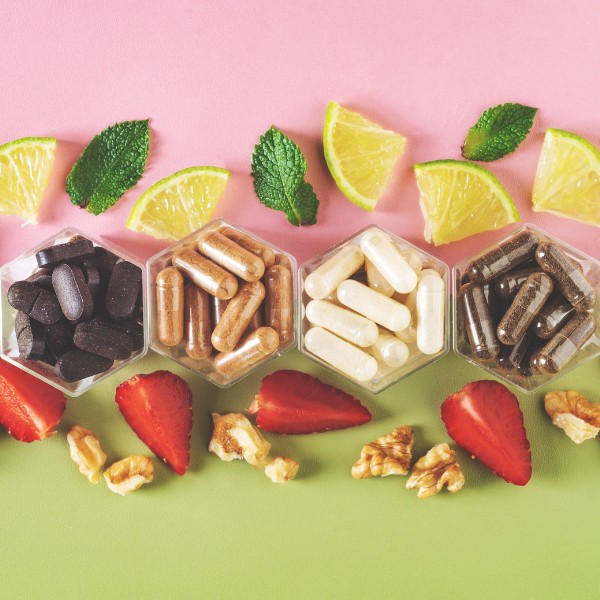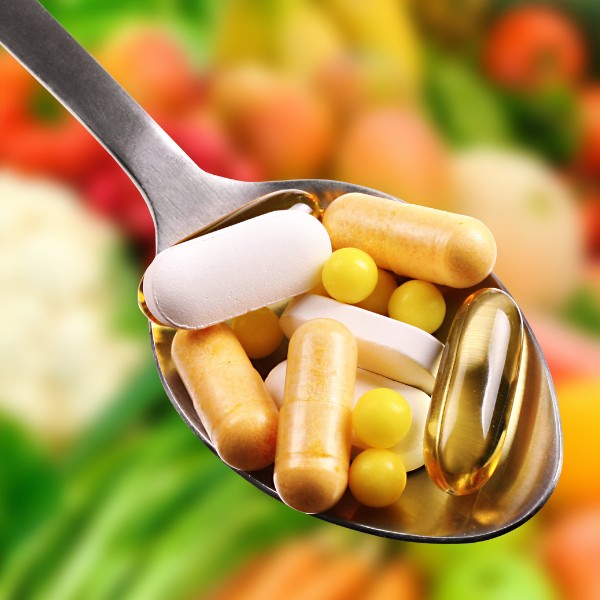Vitamins & Supplements
Vitamins & Supplements
Vitamins and minerals are substances your body needs to help carry out essential functions. They help your body get energy from the foods you eat, help repair tissue, and help maintain life. Therefore, they are necessary for your body. But you may need more if you have kidney disease or are on dialysis.
People with kidney disease suffer from disbalance in macro- and microelements, which affects the functioning of the whole organism. Depending on your illness, you need a specialist approach to help your body gain balance and avoid dangerous complications. You will get different prescriptions for Chronic Kidney Disease (CKD) and Acute Kidney Injury (AKI) if you have kidney stones or are on dialysis.
All the vitamins and minerals we take from the food we eat each day.
Why is Important?
With kidney complications, you will need a special kidney-friendly diet, and you will have to change your habits and adopt new principles, which our doctor fits you according to your disease and your lab test results.
In addition, you may also need to take supplements if the diet rules can’t provide enough substances to your body.
Then on a control visit, which you should see with a care provider regularly, your doctor will check your blood work and prescribe essential supplements as needed to take the best care of your health.
Vitamins soluble in fat
Vitamin A: is a powerful antioxidant in the process of seeing. It helps cell and tissue development, essential for maintaining your immune system and protecting against infection. Doctors should prescribe vitamin A only when there is evidence of benefit.
Vitamin D: promotes healthy bones by helping to regulate the absorption of calcium and phosphorus and supporting your immune system. With CKD, your kidneys can convert vitamin D into an active form for the body to use. Your doctor may prescribe vitamin D based on your lab results.
Vitamin E: protects cells from oxidative stress and free radicals, which may help prevent heart disease and cancer. Vitamin E should only be taken if prescribed by your doctor.
Vitamin K: Contains blood clotting proteins, which are essential for forming healthy bones. In small amounts is produced by large-intestine bacteria. After taking antibiotics, your doctor may prescribe them to you because microbial flora is reduced. Important note: taking this vitamin may interfere with blood thinners!
Vitamins soluble in water
Thiamin (B1) Thiamin helps cells produce energy from carbohydrates and allows the nervous system to work correctly.
Riboflavin (B2) helps cells produce energy and supports normal vision and healthy skin.
Niacin (B3) Niacin helps your body use sugars and fatty acids. It helps your cells produce energy and allow enzymes to function throughout the body. Research suggests that niacin may improve dyslipidemia (abnormal lipid levels), lower serum phosphorus, and help slow the progression of CKD.
Pantothenic Acid (B5) Pantothenic acid takes part in processes producing energy in cells from fat, proteins, and carbohydrates.
Biotin (B7) Biotin and pantothenic acid help cells produce energy. People living with CKD and eating a low-protein, kidney-friendly diet may not get enough biotin and need a supplement.
Folate (B9) Folate helps produce DNA for new cells and works with vitamin B12 to produce new red blood cells. The manufactured supplement, known as folic acid, can reduce the risk of cardiovascular events for people with CKD.
B-Complex Vitamin. Various B vitamins are combined and prescribed in different situations. Some B vitamins—B2, B6, folic acid (B9), and B12 (cobalamine) work together with iron to prevent anemia. Some B2, niacin (B3), and pantothenic acid (B5) help convert food into energy for your body. B vitamins are also often combined with magnesium, which can also help manage stress. B vitamins may be prescribed to people with CKD, depending on dietary needs.
Vitamin C is a well-known potent antioxidant. It neutralizes free radicals and slows down aging. It helps with collagen production and iron absorption. Because of that, it helps keep tissues healthy and heal wounds and bruises quickly. What is more, it prevents infections. Vitamin C might be helpful for patients with type 2 diabetes because it reduces glucose and lipids in the blood. Your doctor may prescribe it if needed.
Calcium, together with phosphorus, builds up bones. Vitamin D3 helps calcium to be absorbed from the digestive tract. Taking as much calcium as prescribed is essential because it can be cumulated in organs if it is too high. If your blood phosphorus level is too high, you may need to take medicine to bind the phosphorus from your food.
Iron is included in hemoglobin- a protein responsible for transporting oxygen in the blood and the right level of red blood cells. Iron is also necessary for some enzymes to work correctly in our bodies. You may need to take iron, but only if prescribed by your doctor, when your kidneys don’t produce enough erythropoietin (EPO) that stimulates the bone marrow to produce red blood cells.




